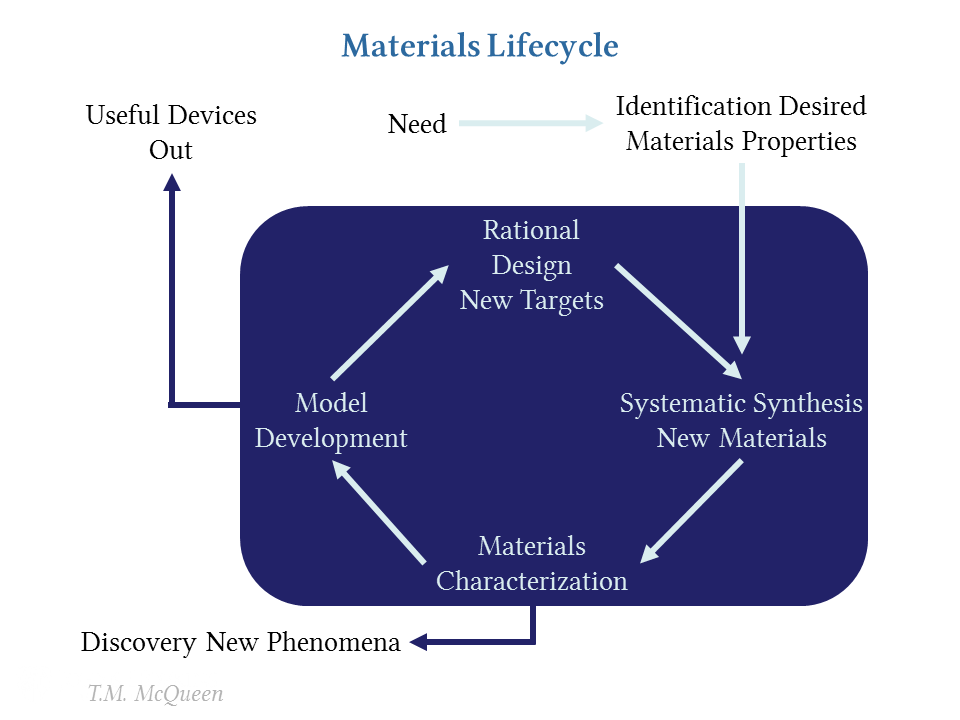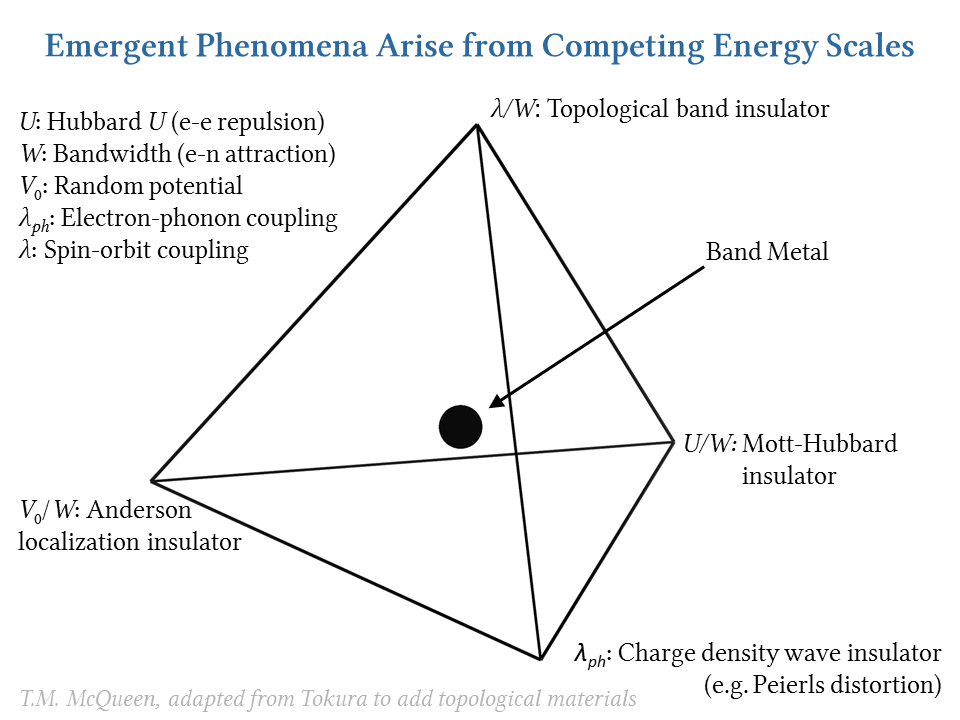Materials chemistry by design is the rational prediction and creation of functional materials with defined properties. Its goal
is to meet current and future societal needs for better or more complex materials, from biocompatible materials in medicine to
lightweight alloys for space applications and energy generation, storage, and transport. Unfortunately materials chemistry has
lagged other sub-fields in an extremely critical area: the ability to selectively make and break bonds in the solid state.
This is due to limited synthetic methodology and method development. True materials by design cannot be achieved until reliable
synthetic capabilities are developed that can actually produce the specified materials.
The goal of the McQueen laboratory is to address this deficiency by redefining the landscape of synthetic capabilities in the solid state.
We then apply the synthetic tools and chemical insights we develop to advance fields with long-term potential to drive major changes in
technology, including superconductivity and quantum computing. We also make discoveries that are driven by the new chemistry we develop:
for example, materials that harbor a long-sought quantum spin ground state known as a spin liquid, and others that increase in symmetry
on cooling (a prima facie violation of chemical principles).
In other words, we not only develop new synthetic methodologies, but use them to drive the discovery of
new phenomena
through the design and synthesis of
new materials. Key to this approach is to target and engineer in competing energy scales arising from electron-electron
and electron-nuclear interactions. We are particularly interested in:
- Discovering novel materials with favorable physical (electrical, magnetic, optical) properties;
- Elucidating the structure-function relationships in these new compounds, especially with regard to the emergent electrical,
magnetic, and optical properties arising from the coupling of charge, orbital, and spin degrees of freedom;
- Pushing our understanding of how to design better materials with specific functions.
An overview of the chemistry of these
quantum materials can be found
here. (email TMM if you do not have access and would like a copy).



